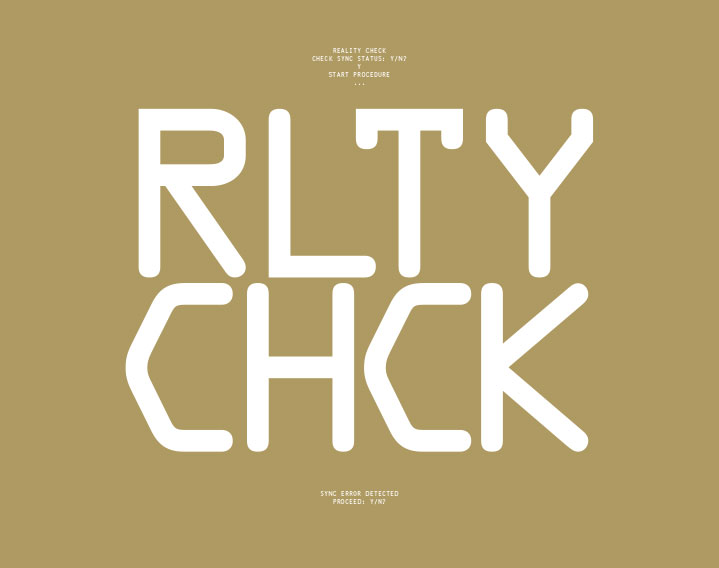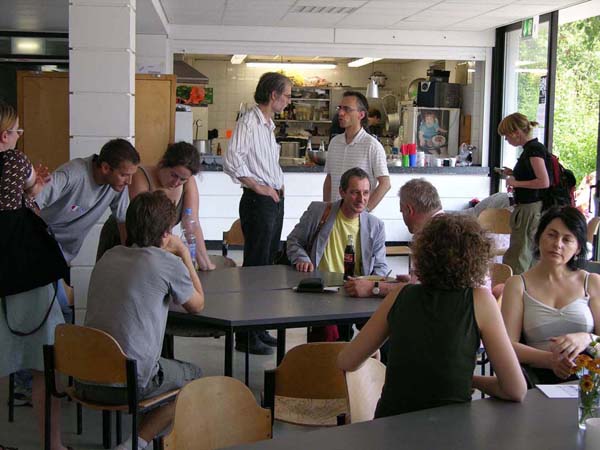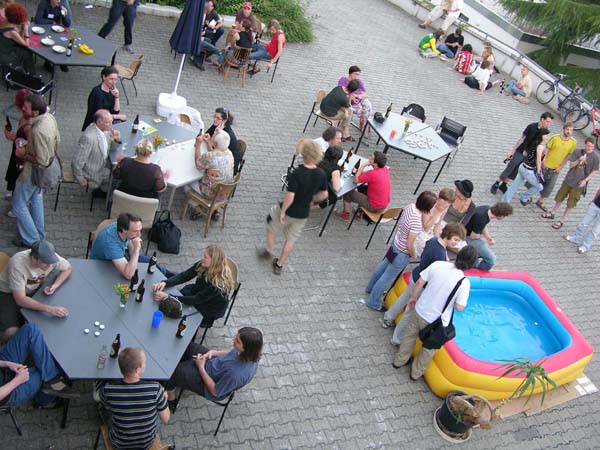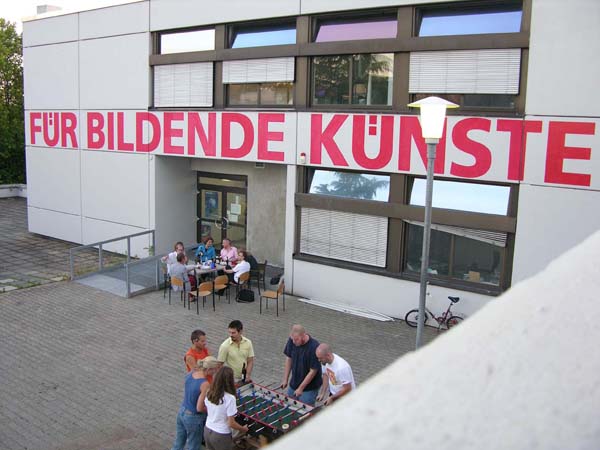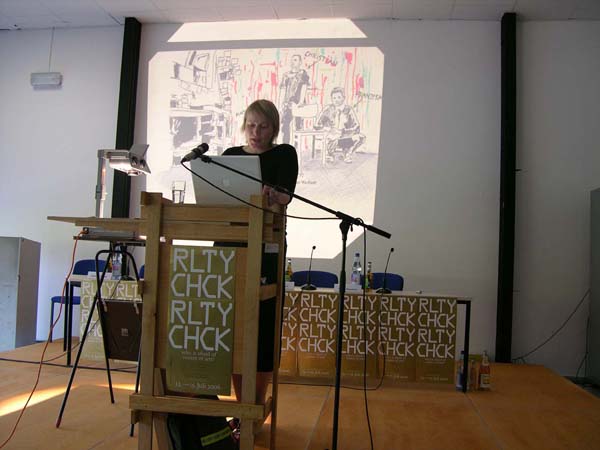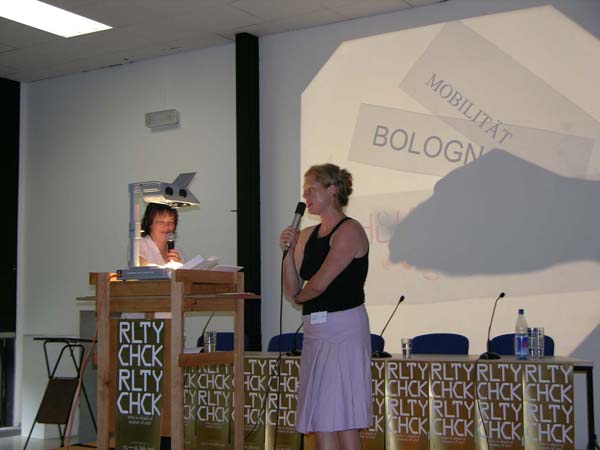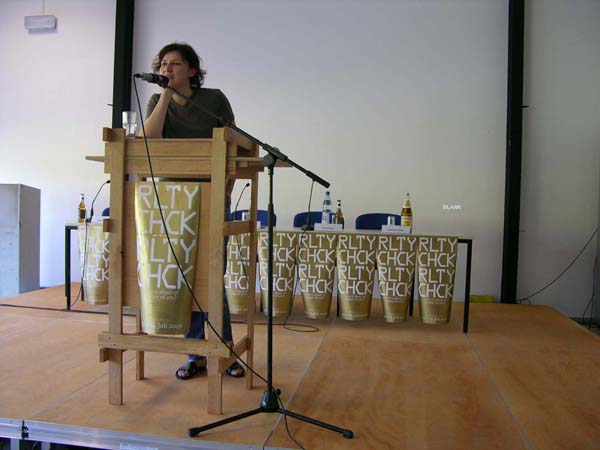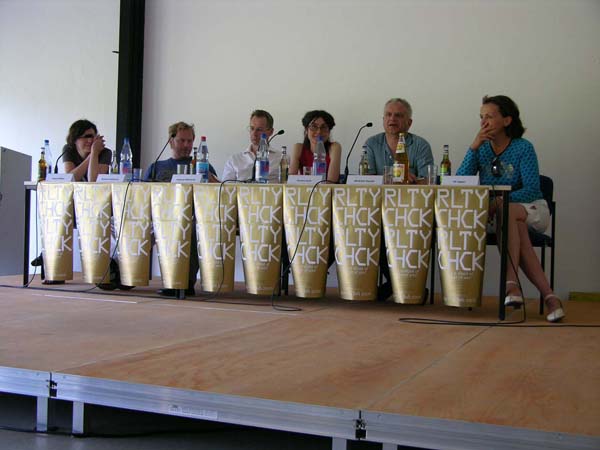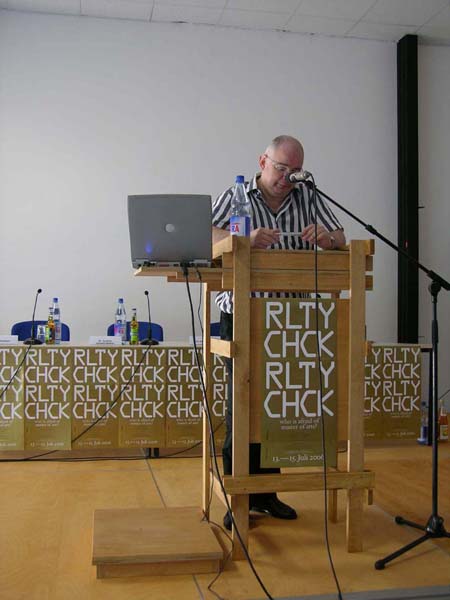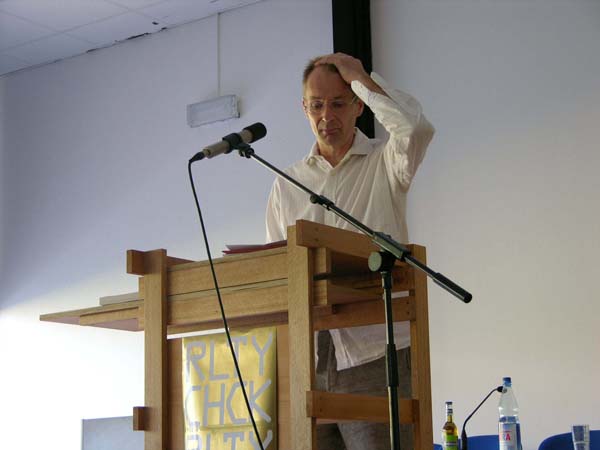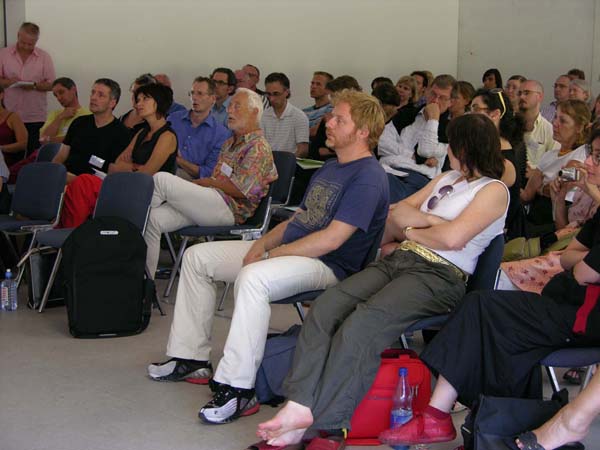Symposium of IGBK dedicated to the engagement with the education of artists at European art academies, in cooperation with the Akademie für Bildende Künste of Johannes Gutenberg University, Mainz on July 13th to 15th, 2006.
In view of the demanded introduction of Bachelor and Master's degrees this topic presently experiences an intense debate. The utopian vision of an open European education and research area is opposed to the fears of a bureaucratization and commoditization of the artists' education.
However, the traditional structure of art studies with its personalized lessons organized in master classes - particularly in Germany - also no longer appears suitable. Although artists from German art academies are among the most successful in the international art business, only a very small percentage of the graduates participate in this market. Under mostly precarious economic conditions the far larger fraction tests new forms of contemporary artistic practice.
The outcome of these endeavors can be described as cultural knowledge production rather than as production of marketable art objects. Projects and cooperative work methods create hybrid artist careers, which appear to displace the traditional image of the artist.
The different perceptions on this topic held by protagonists of the international art market and international teaching institutions were elucidated exemplarily in the context of the symposium. Furthermore, it was of importance to us to show how the debate between the conflicting priorities of the manifold discourses is perceived and conducted by artists outside the universities and how it is reflected in the context of current artistic and curational reality.
We welcomed the speakers and guests with the performance talk RLTY CHCK and opened the conference. Along with a collection of quotes and text fragments pertaining to the topic of art academy we introduced the issues of interest. The starting point of our analysis was the official joint declaration of the Rector's Conference of the Art Academies of the Federal Republic of Germany regarding the Bologna Process, dating from May 18th, 2006.
The Bologna Process
"The German art university system, which can be counted among the most successful in the world, is threatened at its very core by certain aspects of the Bologna Process. Precisely because of the objectives of the Bologna process the federal states must maintain or rather actively advance the special status of the art academies. That is the only way by which the international competitiveness of the German art academies and a high-quality future development of artistic education can be ensured."
This statement served as a guideline for exemplifying and placing in a discursive frame the central ideas of the current debate regarding the academies of art; these are e.g. status, substance, education, mobility, competition, success, quality, etc. Under the heading "Reality Check – who is afraid of master of arts?", the contributions and discussion forums of the two following days offered the opportunity to extensively inform oneself about educational experiences and restructuring processes in comparison to other European countries and discuss the changed image of the artist as well as issues regarding cultural production and economy on the basis of the question Where do we come from, where do we go?
Reality Check - who is afraid of master of arts?
With its joint statement the Rector's Conference of the Art Academies of the Federal Republic of Germany dissociated itself from the modifications pertaining to art studies demanded by the Bologna Protocol. These modifications stipulate organizing art studies throughout Europe in Bachelor and Master's Degrees according to the Anglo-Saxon model and unitizing the content of teaching. The objective is a joint European Higher Education Area with studies leading to comparable degrees.
Karin Stempel, rector of the Kunsthochschule Kassel and presently spokeswoman of this conference, explained that the German art academies disapprove of the two-stage segmentation of studies in the subject Fine Art as well as the unitization of teaching content. According to her, the present success of art education in Germany is the best argument to stick to the existing educational system. Many of the most successful protagonists of the international cultural scene are graduates of German academies of arts. Additionally, German art academies, with their high share of foreign students, have always been internationally oriented, thus rendering the currently demanded reforms obsolete in this regard.
Mrs. Stempel further stated that the discourse in the context of the Bologna Process which is regulated from above is not applicable to the education at German academies of arts, but that it rather greatly endangers the quality thereof. This quality is rooted precisely in the variability and specific tradition of every single academy of art. The German art academies do not, in principle, decline reforms, but these must come from within the universities themselves.
Klaus Jung, Head of the School of Fine Art at the Glasgow School of Arts, formerly active in Norway for many years, regards the self-contained study segments of Bachelor and Master's as particularly sensible if the art academies face their social responsibility and open up to "more than just the lonely path to success as an artist". Jung diagnosed the trend »bachelor at home, master abroad«. In his view, the associated mobility of students also promotes cultural variety.
Katharina Schmidt, who teaches at the École supérieure of the beaux-arts in Toulouse, introduced the advantages and disadvantages of the French system. According to her, an interesting factor to consider is the fact that despite the regimented, school-like course of study in France students are in a position to develop artistic styles of their own very early on. Younger professors and the possibility of drawing on a pool of different teachers contrast with teaching in Germany, which largely focuses on a single artist.
Stephan Schmidt-Wulffen, rector of the Academy of Fine Arts in Vienna, advanced a rather aggressive engagement with the Bologna Process and argued for the introduction of two-stage art studies. He relies upon the strengthening of artistic research ("researching academy of arts") as well as the integration of theory into the curricula of the art academies. Schmidt-Wulffen further emphasized that the humanistic ideal "learning by looking over someone's shoulder" is still often cultivated at art academies. Teamwork and intensive mentoring should take its place. Moreover, the things students have to know and be able to do after three years of studying have to be clearly defined. An additional aim is to confront the traditional exhibition system with alternative fields of artistic activity.
Where do we come from, where do we go?
Stephan Dillemuth of the Academy of Fine Arts Munich perceives the debates pertaining to the university reforms as mock battles as long as the interests behind these remain concealed. Even if in view of an out-dated concept of art a need for renewal is indeed present at many academies, the Bologna Process does not offer any prospects. This process rather abets a marketisation. Following Dillemuth's opinion, corporations have a massive interest in steering the university reform. The company Bertelsmann for instance initiated the establishment of the Centre for Higher Education Development (CHE), which is to influence study contents and university structures according to private interests under the pretence of a putative compatibility ensured by bachelor and master's programs.
With her work "GhostAkademie", exhibited during the symposium, the Viennese artist Uli Aigner, who currently lives in Munich, confronts the university power structures with the counter model of a doctrine which simultaneously represents artistic practice.
The project is organized around students of the Munich Academy of Fine Arts. Possible teaching contents are extracted from works of the artists and so-called teaching pulpits are founded. The resulting "teaching" is recorded and presented in the form of video lectures. 'GhostAkademie' perceives itself as an offer for dialogue and exchange with all students in the wake of the academy but outside the established hierarchies.
The artist Ariane Müller (Berlin/Vienna) introduced the biographies of some artist friends of hers by way of a literary lecture. The significance of experiences and non-institutional artistic exchange for the career of artists thus became clear. Against this background, Ariane Müller referred to the important role of the 'non allied academies' as independent teaching facilities outside the classical networks of universities and academies.
She vindicated the point of view that the academy has to become conscious of its task of educationally affecting society. An academy of art must not solely operate inwardly, as a "providing system" for the students as it were, but also has a responsibility opposite society.
By annette hollywood, Barbara Wille (project managers) and Thomas Weis (IGBK management)
The documentation with contributions by Uli Aigner (Munich/Vienna), Leonie Baumann (Berlin), Doris Berger/Moira Zoitl (Berlin), Stephan Dillemuth (Munich), Thomas Erdelmeier (Frankfurt a.M.), Klaus Jung (Glasgow), Verena Kuni (Frankfurt a.M.), Michel Métayer (Toulouse), Thomas Müllenbach (Zurich), Ariane Müller (Berlin/Vienna), Katharina Schmidt (Toulouse/Berlin), Stephan Schmidt-Wulffen (Vienna), Karin Stempel (Kassel), Winfried Virnich (Mainz) can be ordered at the IGBK office (in german).

